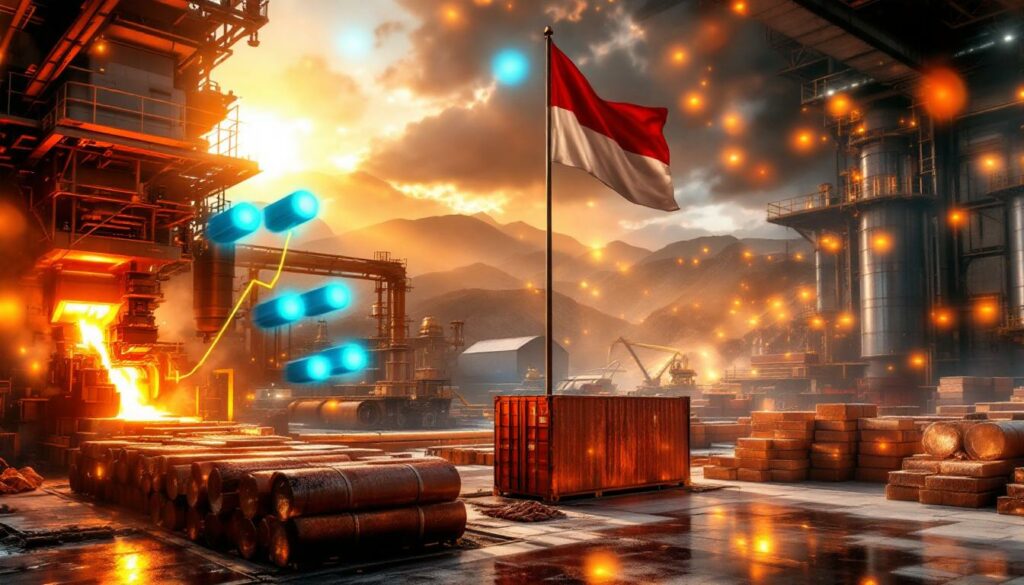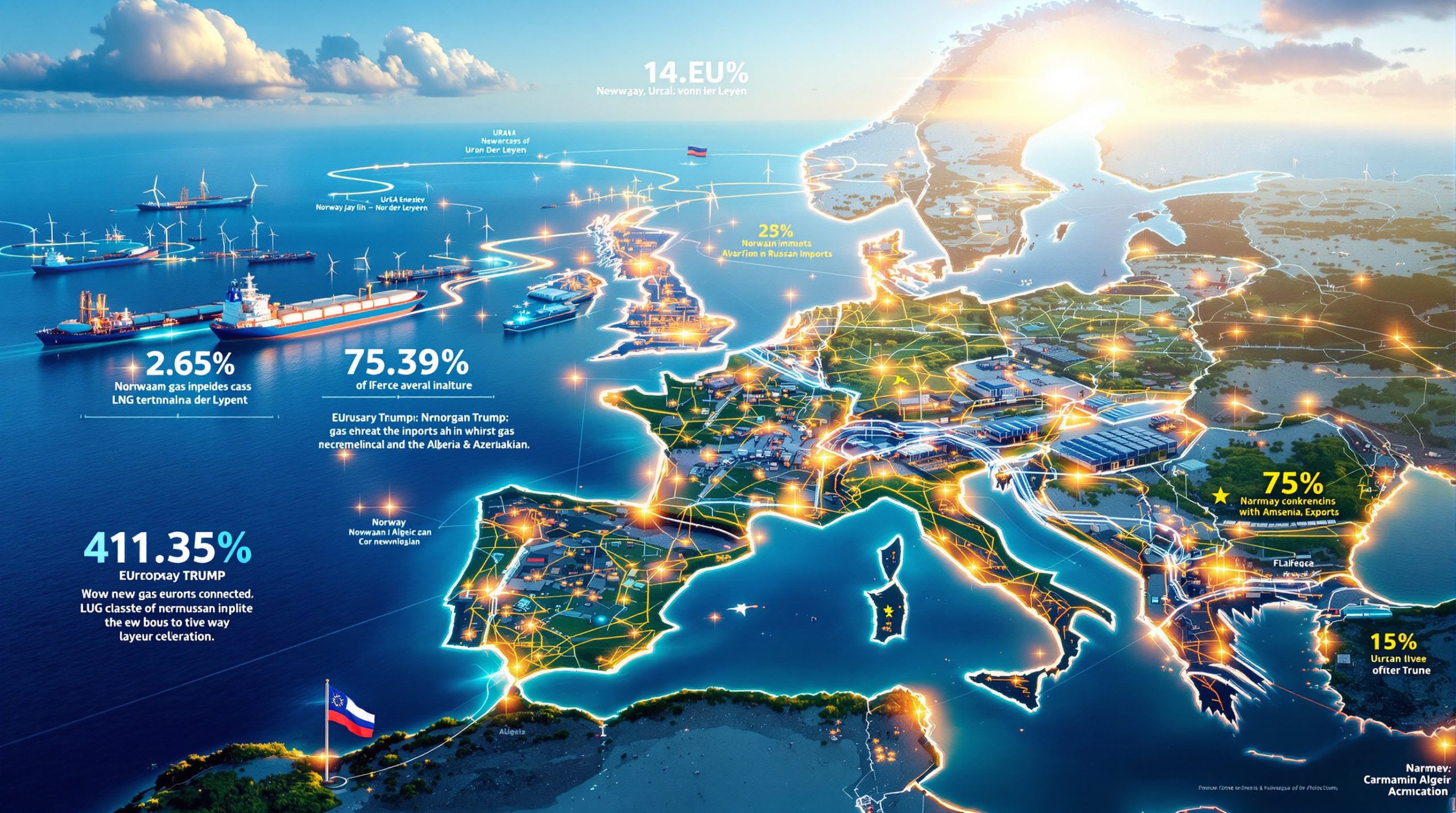Why Is Indonesia Restricting Copper Concentrate Exports?
Indonesia's controversial copper concentrate export restrictions, implemented in mid-2023, represent a bold economic strategy to transform the nation's mining sector. This policy aims to capture more value from natural resources by forcing mining companies to process minerals domestically rather than shipping raw materials abroad.
The ban follows Indonesia's resource nationalism philosophy, which has already shown success in the nickel sector, where similar restrictions led to a dramatic increase in domestic processing capacity—from just 2 smelters to over 43 facilities between 2014 and 2023.
"Indonesia has banned exports of copper concentrates and other raw minerals to encourage metal processing at home," according to Minister Tito Karnavian, who explicitly linked the policy to Indonesia's broader industrialization goals (MINING.COM, July 7, 2025).
Indonesia's Mineral Processing Strategy
The Push for Domestic Value Addition
Indonesia's strategic shift comes after decades of exporting raw minerals with limited domestic economic benefit. The country's mining regulations, formalized under the Mineral and Coal Mining Law (Law No. 4/2009) and subsequently amended, establish a comprehensive framework requiring in-country processing.
This approach serves multiple economic objectives:
- Job creation beyond basic extraction activities
- Higher tax revenue from value-added products
- Technology transfer to build local expertise
- Industrial ecosystem development around mineral processing
- Reduced vulnerability to commodity price fluctuations
The policy particularly targets copper, a critical metal for renewable energy technologies and electrical infrastructure, where the value difference between raw concentrate and processed cathode can exceed $2,000 per tonne. Many industry observers are closely monitoring copper price insights as they directly impact the economic calculations behind these policies.
Timeline of Export Restrictions
The implementation of Indonesia's copper processing strategy has followed a deliberate timeline:
- Mid-2023: Indonesia implemented the copper concentrate export ban
- December 2024: Amman Minerals' special export permission expired
- March 2025: Amman's new smelter produced its first copper cathode
- July 2025: Minister Tito Karnavian requested temporary relief from the ban
This measured approach allowed companies time to develop domestic processing capacity while gradually tightening export restrictions—a lesson learned from the country's earlier, more abrupt nickel export ban.
What Impact Is The Ban Having On Amman Minerals?
The export restrictions have created significant operational and financial challenges for Amman Minerals, one of Indonesia's largest copper producers. These impacts extend beyond the company to affect the broader regional economy.
Operational Challenges for Amman
Production Bottlenecks
The export ban has created a severe logistical challenge for Amman, with concentrate production continuing while smelting capacity remains constrained:
- Approximately 200,000 metric tons of concentrate inventory had accumulated by February 2025 (MINING.COM, July 7, 2025)
- Warehouse capacity strained with months of production awaiting processing
- Cash flow pressures mounting as inventory grows without corresponding revenue
- Annual production capacity of 220,000 metric tons of copper cathode not yet achieved due to technical constraints
Amman spokesperson Kartika Octaviana emphasized that "Government's discernment and policy flexibility, especially regarding copper concentrate sales, will greatly assist the company in maintaining financial strength while seeking to optimize the smelter" (MINING.COM, July 7, 2025).
Industry analysts estimate the company's revenue losses could reach $150 million monthly while exports remain halted, creating significant pressure on the company's balance sheet despite its substantial market capitalization. Such financial constraints have prompted many mining companies to reassess their copper investment strategies in the region.
Economic Impact on Nusa Tenggara Barat Province
The export ban's ripple effects extend far beyond Amman's corporate finances, creating significant economic hardship in Nusa Tenggara Barat province:
- Regional economy contracted by 1.47% in Q1 2025 (MINING.COM, July 7, 2025)
- Local businesses dependent on mining activities reporting revenue declines
- Supply chain disruptions affecting transportation, hospitality, and service sectors
- Employment uncertainty growing as operational constraints continue
The province's economic development, historically tied to mining operations, faces unprecedented challenges as the region's largest employer navigates policy constraints while attempting to maintain operations.
How Does Indonesia's Policy Compare To Global Mining Regulations?
Indonesia's approach to resource nationalism represents one of the most assertive policies among mineral-rich nations, though it follows a global trend of resource-rich countries seeking greater economic benefits from their natural endowments.
Global Resource Nationalism Trends
Comparative Approaches to Mineral Processing
Countries around the world implement various strategies to capture value from mineral resources, with Indonesia's ban representing the stricter end of the regulatory spectrum:
| Country | Resource | Policy Approach | Implementation Timeline |
|---|---|---|---|
| Indonesia | Copper, Nickel | Complete export ban | Phased: 2014-2023 |
| DRC | Cobalt | 10% export tax | Implemented 2023 |
| Chile | Copper | Tax incentives for domestic processing | Ongoing since 2005 |
| Zambia | Copper | Graduated export duties | Phased: 2015-2025 |
| Australia | Various | No processing requirements | Market-driven approach |
Unlike Indonesia's outright ban, many countries employ more flexible approaches:
- Graduated export taxes that increase for less processed materials
- Tax incentives for companies that invest in processing facilities
- Public-private partnerships to develop processing infrastructure
- Research and development support for processing technology
The World Resources Institute's 2024 report on export restrictions found that 15 resource-rich nations have implemented some form of processing requirements, though Indonesia's policy stands out for its comprehensiveness and strict implementation. Meanwhile, these policies are reshaping domestic beneficiation trends across multiple resource-rich nations.
Balancing Investment and Development
The challenge for resource-rich nations lies in balancing domestic value capture with continued investment attraction. Indonesia's approach has produced mixed results:
- Investment inflows have increased in processing sectors
- Project development timelines have extended due to the higher capital requirements
- Smaller mining operations face disproportionate compliance challenges
- International mining companies have reassessed Indonesian operations
According to the IMF's analysis of resource nationalism policies, countries that provide transition periods and implementation support typically achieve better long-term outcomes than those implementing abrupt restrictions.
What Is The Current Status Of Amman's Smelting Capacity?
Amman Minerals has made significant progress in developing domestic processing capabilities but continues to face technical hurdles in reaching full operational capacity.
Smelter Development Progress
Current Operational Status
Amman's smelter development represents one of Indonesia's largest mining infrastructure investments in recent years:
- First copper cathode produced in March 2025 (MINING.COM, July 7, 2025)
- Design capacity of 220,000 metric tons of copper cathode annually
- Capital expenditure exceeding $1.2 billion based on company financial filings
- Technical constraints preventing the facility from reaching full operational capacity
The facility employs flash smelting technology—similar to systems used in world-class operations in Japan and Chile—designed to process concentrate into 99.99% pure copper cathodes used in manufacturing wires, cables, and electronics.
Technical Challenges and Solutions
According to Amman spokesperson Kartika Octaviana, the company has formally reported specific technical constraints to the Indonesian government (MINING.COM, July 7, 2025). While the exact nature of these constraints wasn't detailed, copper smelters typically face several common challenges during commissioning:
- Converter availability and efficiency issues during ramp-up
- Acid plant optimization for sulfur dioxide capture
- Refractory lining performance in high-temperature operations
- Process control system calibration for consistent output quality
Industry experts familiar with similar projects suggest that resolving these technical issues typically requires 6-12 months of optimization, particularly for facilities using advanced environmental controls required by modern permitting standards. These challenges could affect the global copper supply forecast for the coming years.
What Solutions Are Being Proposed?
Government officials and company representatives are discussing potential compromises to address the economic impact while maintaining Indonesia's long-term mineral processing goals.
Potential Policy Adjustments
Minister Tito Karnavian's Proposal
Indonesia's Minister for Nusa Tenggara Barat affairs has advocated for a pragmatic approach to the current situation:
"I have asked the energy and mineral resources minister whether there is a possibility to allow exports while we are waiting for the smelter to be completed," Minister Karnavian stated (Jakarta Globe).
His proposal includes several key elements:
- Temporary export permissions during smelter optimization
- Economic stability measures for the affected province
- Conditionality requirements linking export volumes to smelter progress
- Regular progress verification to ensure continued advancement
This approach draws on precedent from Indonesia's earlier experience with nickel, where certain companies received temporary exemptions while completing smelter construction, including Vale's operations in 2017.
Company's Position and Requests
Amman Minerals has framed its request as a temporary measure rather than an attempt to circumvent Indonesia's broader industrialization policy:
- Temporary export permission to maintain financial stability
- Commitment to continued smelter optimization and expansion
- Transparent reporting on technical constraint resolution
- Prioritization of domestic processing once technical issues are resolved
Amman spokesperson Kartika Octaviana emphasized the need for "government's discernment and policy flexibility" while stressing the company's continued commitment to the smelter project (MINING.COM, July 7, 2025).
Industry analysts suggest that a compromise might include export volume caps (perhaps 50,000 tonnes monthly) with a defined sunset period, conditional on verified progress in resolving technical constraints.
What Are The Broader Implications For Indonesia's Mining Sector?
The outcome of this situation could have significant implications for Indonesia's mining industry and the country's resource development strategy.
Future of Indonesia's Mineral Processing Strategy
Policy Precedent Considerations
The government's response to Amman's situation will establish important precedents for Indonesia's resource governance:
- Policy flexibility vs. credibility balance affects investor confidence
- Procedures for technical exceptions could guide future requests
- Enforcement mechanisms will signal regulatory approach
- Economic impact thresholds may emerge for policy adjustments
According to Fitch Ratings' analysis of regulatory environments, investor confidence depends significantly on predictable exception handling rather than rigid rule application, particularly in capital-intensive sectors like mineral processing.
Economic Trade-offs
Indonesia faces complex trade-offs in balancing short-term economic relief with long-term industrial development:
| Consideration | Export Permission | Export Restriction |
|---|---|---|
| Tax Revenue | Immediate but lower value | Delayed but higher value |
| Employment | Maintains extraction jobs | Eventual processing jobs |
| Regional Economy | Immediate stabilization | Longer-term diversification |
| Industrial Development | Potentially delayed | Accelerated but disrupted |
| Investor Confidence | Short-term positive | Mixed signals |
The Ministry of Finance estimates that fully processed copper cathodes generate approximately 30% more tax revenue per tonne than concentrate exports, representing a significant long-term economic incentive for maintaining the processing requirement despite short-term challenges.
How Does This Affect Global Copper Markets?
Indonesia's policies on copper exports have implications beyond its borders, potentially influencing global supply chains and pricing.
Market Implications
Supply Chain Considerations
While Indonesia contributes only about 3% of global copper output according to USGS data, supply disruptions can have disproportionate market effects:
- Concentrate market tightness affects Asian smelters particularly
- Processing capacity reallocation as material flows adjust
- Contract renegotiations triggered by supply uncertainty
- Strategic stockpiling by traders anticipating disruption
The copper supply chain's complexity means that even relatively small disruptions can create bottlenecks, particularly for specific concentrate grades or in regions heavily dependent on Indonesian supply. Furthermore, emerging copper trade disruption impact could compound these effects on global markets.
Price Impact Assessment
Copper market analysts from trading houses like Trafigura have noted several market effects from Indonesia's policy implementation:
- Price premium for cathodes has widened over concentrate
- Regional price differentials reflect processing capacity distribution
- Term contract negotiations increasingly include policy risk premiums
- Spot market volatility during periods of policy uncertainty
The LME copper price experienced noticeable volatility during Indonesia's policy debates in 2024, demonstrating the market's sensitivity to regulatory changes in key producing countries. According to Reuters reporting, these policy shifts continue to influence global copper pricing.
Long-term price implications depend on Indonesia's success in expanding processing capacity, with the potential for increased regional cathode supply to eventually moderate price premiums if technical constraints are overcome.
FAQ: Indonesia's Copper Export Policies
What is copper concentrate and how does it differ from copper cathode?
Copper concentrate typically contains 20-30% copper and requires further processing, while copper cathodes are 99.99% pure copper ready for manufacturing into wires, cables, and electronics. The processing from concentrate to cathode adds significant value—often $2,000-3,000 per tonne—through multiple stages including smelting, converting, and electrorefining.
Why is Indonesia banning raw mineral exports?
Indonesia aims to capture more value from its natural resources by requiring domestic processing. This strategy creates more skilled jobs, increases tax revenue (up to 30% more for processed vs. raw materials), and develops a more sophisticated industrial base rather than simply exporting raw materials. The policy has already shown success in the nickel sector, where Indonesia has moved from a raw material exporter to a key player in the electric vehicle battery supply chain.
How long has Amman Minerals been operating in Indonesia?
Amman Minerals Internasional operates the Batu Hijau copper-gold mine in Nusa Tenggara Barat province. The company acquired the operation from Newmont Mining and has become a significant player in Indonesia's mining sector, ranking among the world's most valuable mining companies based on its substantial copper and gold reserves.
What happens if the government doesn't grant export permission?
Without export permission, Amman faces continued financial pressure as inventory accumulates, potentially affecting operations, employment, and regional economic stability in Nusa Tenggara Barat province. The provincial economy has already contracted by 1.47% in Q1 2025 due to these restrictions. Prolonged export limitations could force production curtailment, staff reductions, and further economic contraction in a region heavily dependent on mining activity.
How does Indonesia's policy compare to other copper-producing nations?
Indonesia's approach is more restrictive than many other copper-producing countries. Chile, the world's largest copper producer, uses tax incentives rather than bans to encourage domestic processing. The Democratic Republic of Congo applies a 10% export tax on unprocessed cobalt rather than a complete ban. Indonesia's policy represents one of the most assertive examples of resource nationalism globally, though several nations are implementing various forms of policies to increase domestic benefits from their mineral resources.
Further Exploration:
Readers interested in learning more about Indonesia's mining policies can also explore related educational content available at MINING.com, which offers additional perspectives on global mining trends and regulatory developments.
Want to Profit from the Next Major Mineral Discovery?
Be the first to know when significant mineral discoveries break on the ASX with Discovery Alert's proprietary Discovery IQ model, which converts complex geological data into actionable investment opportunities. Explore why historic discoveries can generate substantial returns by visiting the Discovery Alert discoveries page and position yourself ahead of the market with your 30-day free trial.




